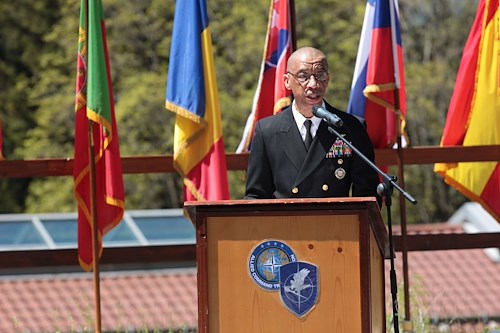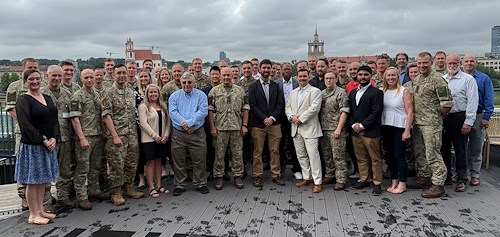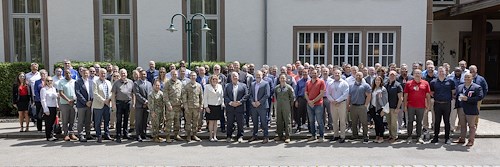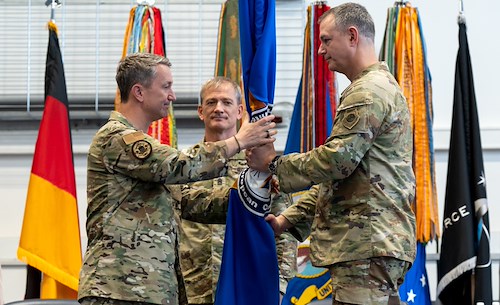Gallery contains 1 image
×
Photo 1 of 1
EUCOM Leader Attends Change of Command at NATO School Oberammergau
The Change of Command Ceremony at the NATO School Oberammergau (NSO) on 17th May 2017. The Change of Command Ceremony was presided over by REAR ADMIRAL JOHN W. SMITH, JR., US Navy, the Chief of Staff U.S. European Command. CAPTAIN W. SCOTT BUTLER, USA NAVY, did relinquish command to COLONEL TIMOTHY DREIFKE, USA AIR FORCE, as Commandant.
U.S. Air Force Colonel Timothy E. Dreifke assumed responsibility as Commandant of the NATO School Oberammergau in a ceremony May 17.
U.S. Navy Rear Admiral John W. Smith, Jr., Chief of Staff of U.S. European Command, presided over the formal ceremony. The Bavarian State Government was represented by Dr. Marcel Huber, Head of the Bavarian State Chancellery. After almost four years as the Commandant of the NATO School Oberammergau, Navy Captain W. Scott Butler handed over his duties and was recognized for his achievements and outstanding performance providing first - class training and education NATO - wide.
For him “ to live in this amazing Bavarian community, and to work as part of this unique international community, has been the highlight of my professional career and personal life. Nothing else has even come close.”
Colonel Dreifke, who has served as the NATO School Oberammergau’s Dean of Academics for the last two years, emphasised that the school is the central institution where NATO’s “trust, relationships and foundations are built, in this school, [...] in Bavaria, by our family of 179 military professionals [ ... ] both in and out of uniform.”
The ceremony was supported by the Mountain Music Corps of the German Armed Forces from Garmisch - Partenkirchen and the Black Powder Gunners from Urspring. The NATO School Oberammergau is NATO’s key education and training facility at the operational level.
Established in 1953, it welcomes today around 10,000 students, conference guest and speakers every year. Officers, non-commissioned officers and civilians from all allied and national military commands within the NATO Alliance attend courses at the NATO S chool Oberammergau , often together with partners from other countries. This unique institution has grown from two courses in 1953 to 110 different courses nowadays. Today's courses cover basic NATO orientation, multinational forces, weapons employment, environmental protection, electronic warfare, command and control, psychological operations, logistic operations, mobilization forces, weapons of mass destruction, peacekeeping missions, crisis management and public information. The courses are continually revised and updated to reflect current developments across the Alliance.








